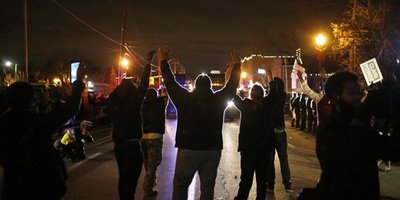
The basics
1. What happened? A grand jury decided not to indict Ferguson police officer Darren Wilson in the shooting death of teenager Michael Brown. 2. What does that mean? Darren Wilson will not face criminal charges from the state in the future. He could face a charge from the U.S. Department of Justice, however this is unlikely to happen. 3. Who announced it and what did he say? St. Louis County Prosecutor Robert P. McCulloch announced the decision of the grand jury in the three-minute video clip here . You can find the full announcement here . 4. How do I discuss this in class? Dr. Marcia Chatelain began the hashtag #FergusonSyllabus on Twitter to inspire conversations between educators on how to address the events in Ferguson with students. She also gave age-specific advice for teachers discussing Ferguson with their classes on the PBS NewsHour's Teachers' Lounge blog.
Reactions
1. Text | The Brown Family's statement on the decision
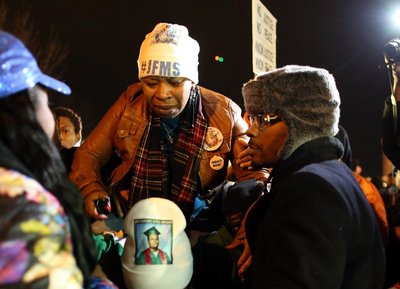
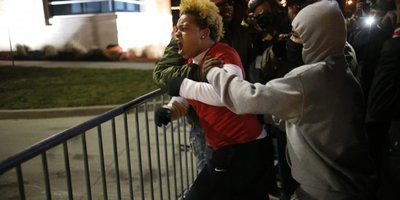
Background resources
1. NewsHour Extra | Ferguson in the classroom
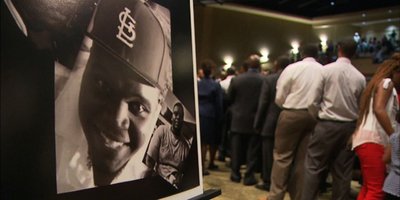
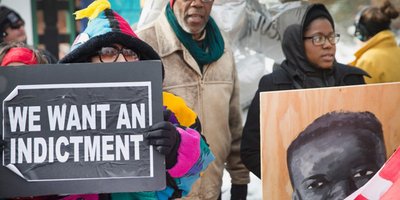
Nonviolent civil resistance resources
1. TED Talk | The success of nonviolent civil resistance Political scientist Erica Chenowith explores the topic in-depth in her TED Talk “The success of nonviolent civil resistance." 2. Speech | Robert F. Kennedy - Remarks on the Assassination of Martin Luther King, Jr. Despite rioting in other major American cities, Indianapolis remained calm that night after Kennedy's remarks, which is believed to have been in part because of the speech. In stark contrast to Indianapolis, riots erupted in more than one hundred U.S. cities including Chicago, New York City, Boston, Detroit, Oakland, Pittsburgh and Baltimore, killing 35 and injuring more than 2,500. Across the country, approximately seventy thousand army and National Guard troops were called out to restore order.

